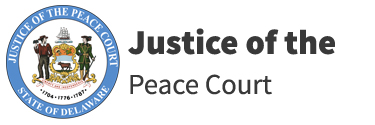History
As early as the 1600's, Justices of the Peace were commissioned to handle minor civil and criminal cases. Along with a host of other duties, the administering of local government in the 17th and 18th Centuries on behalf of the English Crown was a primary duty of the Justices of the Peace. With the adoption of the State Constitution of 1792, the Justices of the Peace were stripped of their general administrative duties leaving them with minor civil and criminal jurisdiction. During the period, 1792 through 1964, the Justices of the Peace were compensated entirely by the costs and fees assessed and collected for the performance of their legal duties.
In 1965, under the leadership of Governor Charles Terry, Jr., the Justice of the Peace Court System was reformed. No longer would the Magistrates keep any part of the costs and fees as they had for the previous 120 years. The Courts were brought into the State Court System to be administered by the Chief Justice of the Supreme Court. In 1980, a Chief Magistrate, who is a member of the Delaware Bar Association or the Bar of the Supreme Court of Delaware, was appointed to act for the Chief Justice in the affairs of the Justice of the Peace Courts.
The Justice of the Peace Court System currently employs 286 personnel, has 16 Courts which process cases at 14 different locations throughout the State. The court has jurisdiction over civil cases in which the amount in controversy does not exceed $25,000. Justice of the` Peace Courts are also authorized to hear certain misdemeanors and most motor vehicle cases (excluding felonies) and may act as committing magistrates for all crimes.

